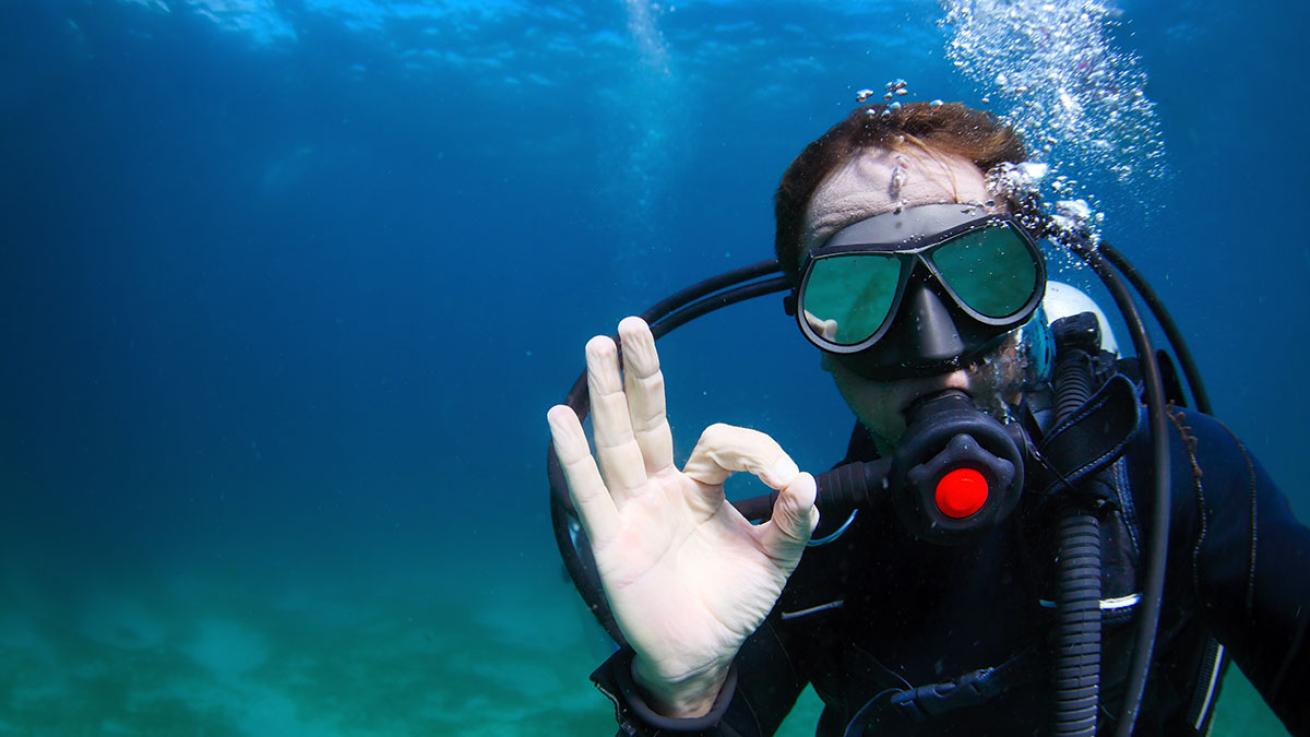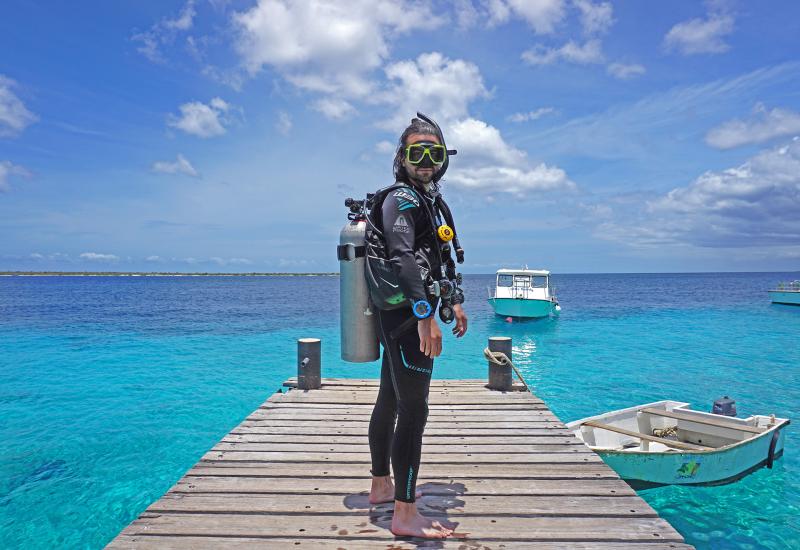5 Things Experienced Scuba Divers Forget to Do

ShutterstockBefore entering the water, complete a predive checklist.
It happens to nearly all divers once they get enough experience under their weight belts — overlooking basic things that help keep us safer underwater. Here are five questions you should answer every time you prepare to make a dive and when you’re underwater.
BEFORE YOU DIVE
1) Has your gear been serviced in the last 12 to 24 months? First, self-maintenance is crucial to ensuring the working life and safety of your dive gear. We’ve got tips for taking care of your BC, reg, and dive computer. How frequently you get your gear serviced depends on how often you dive and which piece of gear it is. For example, if you make fewer than 100 dives a year, get your regulator serviced annually. But if you make more than 100, you likely need more frequent servicing. Follow the manufacturer’s recommendations for getting your life-support gear inspected and serviced. You wouldn’t get into an airplane that hasn’t been routinely inspected and serviced, so why would you dive with gear that hasn’t been maintained properly?
2) Do you have brand-new gear? If you’ve just purchased an item of gear, make sure you’ve assembled it at home, that it fits and that you’re familiar with how it works. Don’t wait until you’re about to take it out on its first dive to discover you don’t know how to set your dive computer to nitrox mode or that your nifty new wetsuit is sized to fit a skinny supermodel (which you are not).
3) Did you complete a predive check with your buddy? A predive check may seem akin to making kindergartners hold hands while on field trips, but they are valuable in terms of a diver’s safety — and they only take a couple of minutes to perform. They can prevent an inconvenience like forgetting your weights and avoid safety-related problems, such as making sure your BCD’s inflator hose is connected and your air is on. The BWRAF memory aid should help:
B – BCD is on and fastened correctly; inflator hose is connected
W - Weights are in a secure place, either on a belt or integrated
R - Releases are fastened and you and your buddy know where to locate them
A - Air is on
F - Final “OK”; you’ve got all your gear and you are ready to go!

ShutterstockTelling your buddy, “I have the same ocean, same dive philosophy” is not cool. Make sure you check on your buddy during the dive. One way to check is to flash the “OK” sign — frequently if he or she is a new diver — to make sure he or she isn’t having an issue that needs addressing.
DURING THE DIVE
4) Have you checked in with your buddy? Scuba diving is a special and fun experience that’s made better when you can share it with someone. Not a “touchy-feely Hallmark greeting card that leaves you warm and fuzzy” kind of diver? We’re not asking you to hold hands and sing kumbaya underwater — we’re just asking you to make sure your buddy is OK and that you’re close enough to render aid if either of you has an emergency — or just wants to show you a cool critter. You and your buddy should head in an agreed-upon direction, stay within a 15-second swim of each other, and check in with frequent use of hand signals.
5) Are you monitoring your own gauges? Do we really need to remind you to keep an eye on your depth and air? Apparently, yes, as divers do sometimes run low on air and exceed depth limits in pursuit of hammerhead sharks and other amazing ocean animals — it can be especially easy to get distracted during a dive if you’re using an underwater camera. This last tip speaks to situational awareness — a term that’s crucial in the military community because it’s recognized as being effective in training leaders to make sound combat decisions in a tactical environment. Are we exaggerating your role underwater? On most dives, yes. But should you ever need to get yourself or your buddy out of a dangerous situation, it will be made easier of you’ve stayed vigilant, are aware of what is happening around you, and are where you are supposed to be. Checking your gauges isn’t the only thing you need to do to have situational awareness, but it’s an important part of adopting that philosophy.










